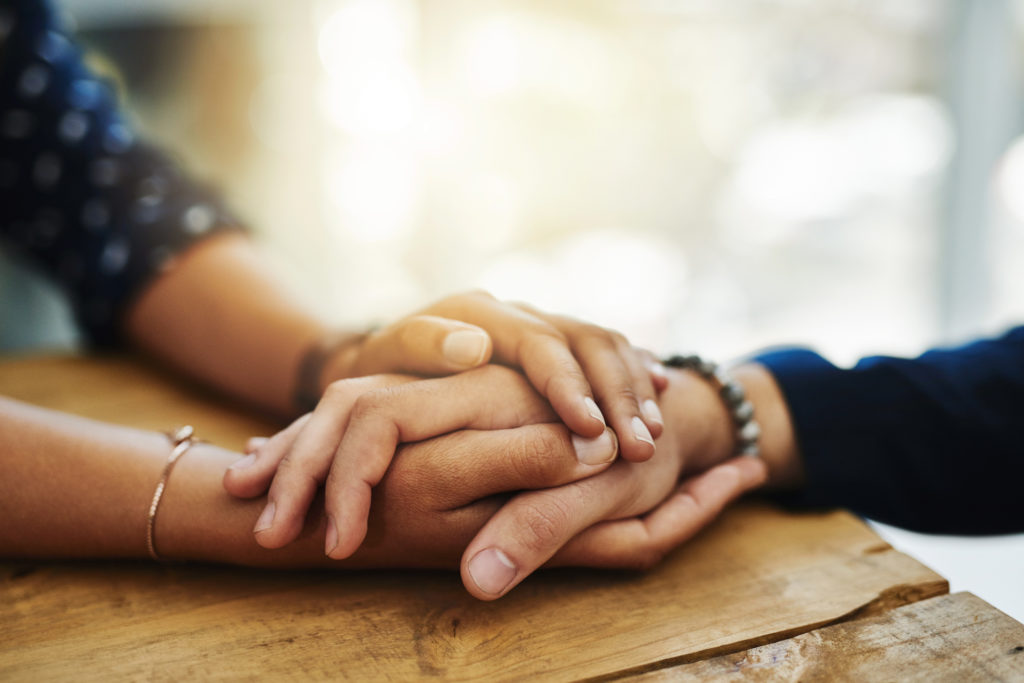Eating Disorders and Intimacy: Curing an Eating Disorder
I’d like to introduce you to Share Holland, who is a Licensed Professional Counselor Candidate and an EDIT™ Certified III – Eating Disorder Treatment Clinician. I supervised Share while she was working with me at my previous office location in Denver. She is a knowledgeable and compassionate therapist, who incorporates the development of intimacy into recovery. You can contact Share with any comments or questions, including how to get started with individual sessions with Share (see bottom of article).
– Dr. Dorie
As a therapist, I often hear about the shame and secrecy surrounding eating disorders. Usually clients experience this pain behind locked doors, in their bedrooms and bathrooms, separate from the rest of the world. There is a fear that many clients have of feeling utterly alone whilst simultaneously thinking that no one could possibly love them if they were “found out.”
Isolation feeds eating disorders. Connection feeds recovery. This begins by allowing eating disorders and intimacy to go hand-in-hand, and through this process the “cure” will naturally unfold.
In my client work, I have seen two primary barriers to intimacy, which can block us from our inherent desire to connect. This causes us to feel alone, separate, and desperate. Here are some ideas to overcome these barriers to eating disorders and intimacy:
- Intimacy Requires Being Vulnerable: In order to feel connected to others, we have to reveal truths about ourselves, even the ones we don’t like to share. If I only share the positive aspects of myself with someone, then I am robbing them of actually knowing me. We are made up of good and bad, light and dark, and everything in between. How can we truly feel loved if we only share certain parts of ourselves? Many clients think that there is no possible way they will be loved or accepted if they share their deepest, darkest secrets. Although I think everyone has the right to keep things secret or decide when and where they want to reveal more about themselves, I also believe that true love and acceptance comes from an appreciation or understanding of all parts of the self, not just the shiny, happy parts we like to show off to others.
- Intimacy Requires Being Non-Judgmental: Real intimacy is hard. It requires us to be honest about our thoughts and emotions, which sometimes feels like we are breaking down our protective walls or even peeling off layers of our skin. Rather than admitting to our struggles with food, exercise, weight, or other addictions, we will often judge ourselves to feel safe. This sounds counter intuitive, but it is often the case. It is easier to think that no one will accept me so I have to hide these parts of myself because they are ugly, bad, or wrong. Ultimately, there is no good, bad, or wrong. Perspectives are relative. These are constructs created to keep you in hiding. If you think it’s bad then you can keep it a secret and avoid feeling judged by others. The problem is that you are already judging yourself, experiencing the pain of your own judgments, and missing out on true intimacy.
I am not suggesting that you blurt out every thought in your head to everyone that comes across your path. Unfortunately, like everything else, it is not that black and white. However, I am suggesting that there maybe someone close to you who would understand your struggle better than you may think. Perhaps revealing your challenges with food, exercise, weight, or addiction may allow intimacy in your relationships – which may be your True Hunger.
*****
Want to cultivate intimacy? Contact Share Holland, MA, LPCC – the author of this blog article. Share is an EDIT™ Certified III – Eating Disorder Treatment Clinician, and has a specialty in mindfulness-based recovery practices at her office in Boulder, Colorado. EMAIL SHARE
Interested in a FREE consultation with Dr. Dorie? Dr. Dorie is passionate about her method of Eating Disorder Intuitive Therapy (EDIT)™ to help people overcome eating disorders and addictions. She provides customized counseling for eating disorders and alcohol / drug addiction at her Positive Pathways treatment center in Evergreen, Colorado – and EDIT™ eating disorder training and certification for coaches and clinicians worldwide. CALL 303-494-1975 – EMAIL DR. DORIE – GET CERTIFIED

